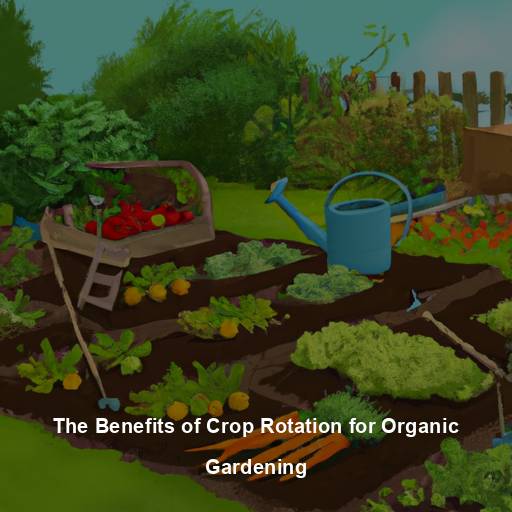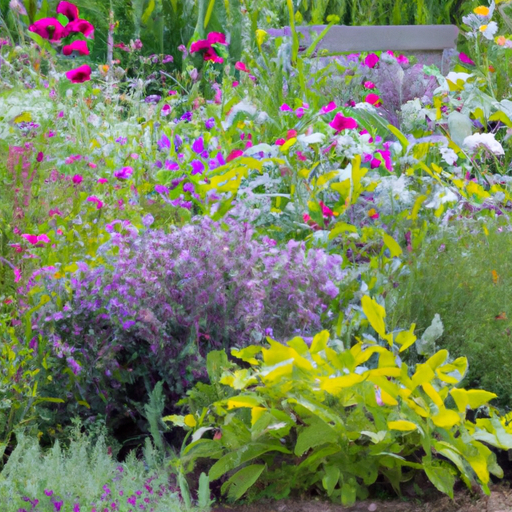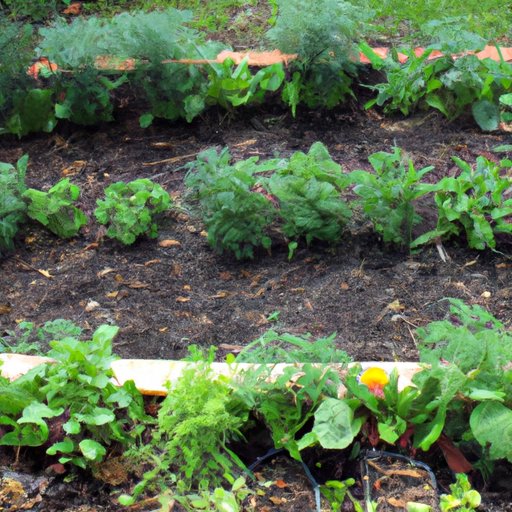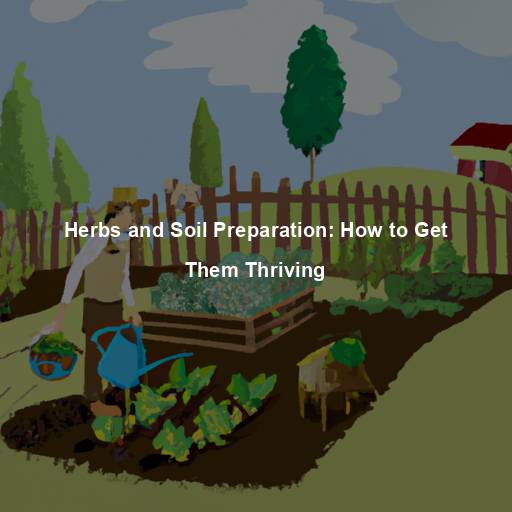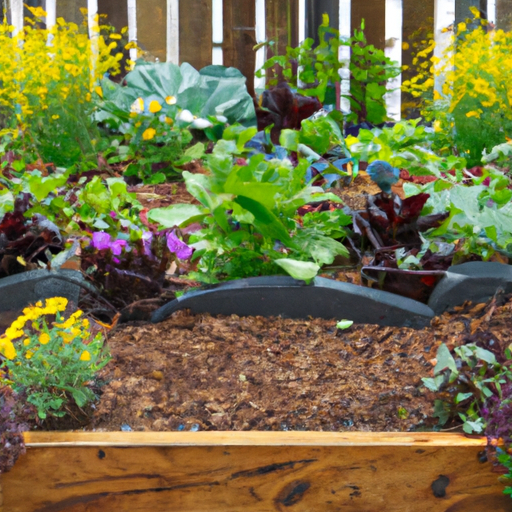Welcome fellow gardeners! As a Master Gardener, I know firsthand the importance of choosing the right organic mulch for your garden.
Mulching is an essential part of gardening that can help to conserve moisture, suppress weeds, regulate soil temperature and improve soil health. However, with so many different types of organic mulches available on the market today, it can be overwhelming to decide which one will work best for your particular plants and soil type.
In this article, we’ll explore some key factors to consider when choosing the right organic mulch for your garden. So grab a cup of tea or coffee and let’s dive in!
Understanding Different Types Of Organic Mulch
As a Master Gardener, it’s important to understand the different types of organic mulch available for your garden.
Organic mulch is made from natural materials such as leaves, straw, bark, and compost. These materials offer many benefits to your soil and plants including weed suppression, moisture retention, and temperature regulation.
However, there are also drawbacks to consider such as potential pest problems or nutrient depletion if not used correctly.
When comparing organic mulch with inorganic options like rocks or plastic sheeting, organic mulch helps build healthy soil over time while inorganic options do not.
Overall, understanding the benefits and drawbacks of each type will help you choose the best option for your specific garden needs without harming the environment or compromising plant health.
Considering Soil Type And Nutrient Needs
Now that we have discussed the different types of organic mulch, it is important to consider your soil type and nutrient needs before choosing the right one for your garden.
Soil pH plays a significant role in determining what type of mulch you should use as certain plants thrive better in acidic or alkaline soils.
For instance, pine needles are ideal for acid-loving plants like blueberries while wood chips work best for neutral to slightly acidic soils.
Additionally, if you experience any nutrient deficiencies in your soil, opt for fertilizing mulches such as compost or manure-based ones.
These will not only help improve the overall health of your soil but also provide the necessary nutrients needed by your plants.
Remember to conduct soil tests regularly so that you can adjust accordingly when selecting organic mulches based on your garden’s changing needs.
Assessing Moisture Needs And Climate Conditions
As a Master Gardener, it is important to assess the moisture needs and climate conditions of your garden before choosing the right organic mulch.
Suspense builds as you consider how different types of mulches will impact these factors.
Firstly, think about your watering schedule – if you live in an area with limited rainfall, choose a mulch that retains moisture well such as straw or shredded leaves. On the other hand, if you experience heavy rainfalls frequently opt for fir bark or wood chips which allow water to drain through easily.
Secondly, take into account temperature tolerance – some plants thrive in high temperatures whilst others prefer cooler environments. In warmer areas, use a light-colored mulch like hay or pine needles to reflect sunlight and keep roots cool. For colder regions use heavier materials like peat moss or sawdust to insulate plants during winter months.
By considering both moisture needs and climate conditions when selecting organic mulch, you can ensure that your garden is set up for success without having to worry about overwatering or undernourishing your plants.
Weighing Cost And Availability
When choosing the right organic mulch for your garden, it’s important to consider not only its benefits and suitability but also how much it costs and whether you can find it locally.
Comparison shopping is a great way to determine which type of mulch offers the best combination of price and quality. You may discover that some types are more expensive than others or that certain brands offer better value for money.
Additionally, local sourcing is another factor to keep in mind. By purchasing from nearby suppliers, you support your community while minimizing transportation emissions. This approach saves both time and money, as well as reducing carbon footprint.
Ultimately, by weighing cost and availability against other factors such as nutrient content or moisture retention properties, you’ll be able to make an informed decision about which organic mulch is right for your garden needs.
Application And Maintenance Tips
Weighing cost and availability is important, but another crucial aspect to consider when choosing the right organic mulch for your garden is its application and maintenance. According to a survey conducted by the National Gardening Association, 67% of gardeners use organic mulches in their gardens. It’s essential to know how to properly apply and maintain your chosen mulch to maximize its benefits. For instance, applying a layer that’s too thick can lead to waterlogging and root rot while not enough coverage may result in weed growth or soil erosion. To help you decide which type of mulch suits your needs best, refer to this table:
| Mulch Type | Pros | Cons | Best Use |
|————|——|——|———-|
| Straw | Inexpensive; breaks down gradually | Can attract rodents; doesn’t provide much nutrient value | Vegetable beds |
| Wood chips | Long-lasting; good for controlling weeds | Acidic pH levels can harm certain plants; may need frequent topping up | Around trees/shrubs |
| Grass clippings | Rich in nitrogen; free if you mow your lawn regularly | May get moldy if wetted down too heavily at once | Vegetable beds |
| Leaves | Abundant in fall season; improves soil structure as it decomposes | Can mat together if not shredded beforehand; may take longer to break down than other types | Around perennials/bulbs |
Keep in mind that there are also mulch alternatives such as gravel, rocks, or even recycled rubber tires. However, these options don’t offer the same benefits as organic materials do. Additionally, seasonal mulching is recommended depending on where you live since different climates require different approaches (e.g., heavier layers during winter months). By taking into account all factors from cost to application/maintenance tips and seasonal considerations, you’ll be on your way to choosing the right organic mulch for a thriving garden.
Frequently Asked Questions
Can Organic Mulch Attract Pests To My Garden?
When it comes to using organic mulch in your garden, one concern that may come up is whether or not it will attract pests.
However, there are ways to prevent this from happening through the use of integrated pest management techniques and natural repellents.
By incorporating these methods into your gardening routine, you can enjoy the benefits of organic mulch without having to worry about unwanted visitors damaging your plants.
As a Master Gardener, I always recommend taking a proactive approach when it comes to pest control and utilizing environmentally friendly solutions whenever possible.
How Often Should I Replace Organic Mulch In My Garden?
As a Master Gardener, one of the most common questions I get is how often to replace organic mulch in the garden.
Signs of decomposition like mold or an unpleasant smell are good indicators that it’s time for new mulch.
However, leaving old mulch has its benefits too – it can help retain moisture and suppress weeds.
If you decide to leave old mulch, make sure to fluff it up and add fresh material on top every year.
Remember, healthy soil equals healthy plants!
Can I Use Different Types Of Organic Mulch In The Same Garden Bed?
Mixing mulch is a common practice among gardeners, but it’s important to consider the compatibility of different types before doing so.
While certain combinations can work well together, others may negatively affect your soil quality and plant health.
For example, mixing fresh wood chips with leaf mold could lead to nitrogen depletion in the soil due to high carbon content from the wood.
As a Master Gardener, I recommend researching each type of organic mulch you plan on using and understanding how they interact with one another before mixing them in the same garden bed.
Is There A Specific Time Of Year That Is Best For Applying Organic Mulch?
When it comes to applying organic mulch, timing is everything. The benefits of seasonal mulching are numerous and can greatly enhance the health and productivity of your garden.
In general, the best time to apply organic mulch is in early spring or late fall when soil temperatures are cooler and moisture levels are higher. During these times, mulch can help regulate soil temperature, retain moisture, suppress weeds, and provide nutrients as it breaks down over time.
However, be sure to consider the specific needs of your plants and the climate in your region before deciding on a particular type of organic mulch. Comparing different organic mulch types will allow you to choose one that meets both your gardening goals and environmental concerns.
As a Master Gardener, I recommend experimenting with different types of organic mulch throughout the year to find what works best for your garden.
Are There Any Safety Precautions I Need To Take When Handling Organic Mulch?
Just as a seasoned chef carefully selects and handles the ingredients that go into their dish, Master Gardeners know that choosing and handling organic mulch requires attention to safety measures and handling techniques.
When working with organic mulch, it’s important to wear gloves and a mask to protect against potential allergens or harmful bacteria.
Additionally, be sure to handle the material gently when spreading it around your garden beds – this will help ensure that you don’t accidentally injure any delicate plants in the process.
By taking these precautions and treating your organic mulch with care, you can create a healthy environment for your garden to thrive.
Conclusion
In conclusion, choosing the right organic mulch for your garden can be a daunting task. However, by following these tips and tricks, you’ll be well on your way to creating a healthy and thriving garden.
Remember to consider factors such as pest attraction, replacement frequency, and compatibility with other types of mulch when selecting your organic mulch. Additionally, timing is everything! Applying your mulch at the right time of year can make all the difference in its effectiveness.
As a Master Gardener, I highly recommend taking safety precautions when handling any type of organic material. Wear gloves and protective clothing to avoid skin irritation or inhalation of dust particles.
With these things in mind, you’re sure to have success with your organic mulching endeavors! Happy gardening!

